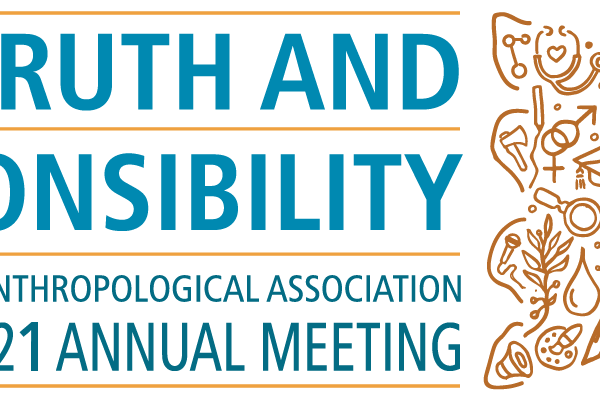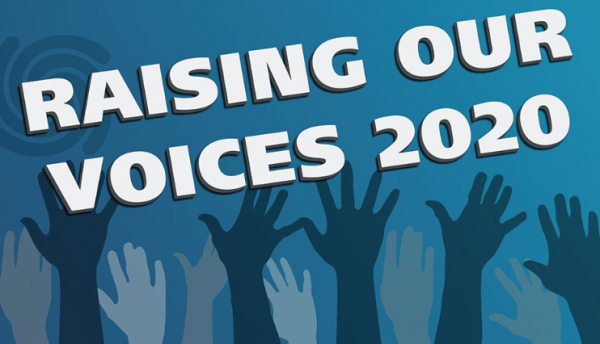Washington D.C.

AES Business Meeting
Thursday, November 29
Sharon Stephens Book Award
Senior Book Award
Discussion of Section Assembly Representation and Other Business
Panel on AES Resolution on Anthropology and the Military/Iraq War, Concerned Anthropology Network Pledge
Discussants: Marshall Sahlins, Catharine Lutz, David Price
AES Reception with SUNTA/SCA
Friday, November 30
AES Invited Sessions
Anthropological Research for Social Movements: Building a Collaborative Research Agenda Towards Social Equity, Part 1
Chair: Karen Brodkin
Participants: Harriet
Rosenberg, Ruth W Gilmore, Karen L Ishizuka, Hilary Cunningham, Lynn M Stephen, Wende E Marshall, Svetlana A. Peshkova, Sam Beck, Fabian Frenzel
AAA Presidential Co-sponsor
Expeditions: Anthropology
and Popular Culture, Reinventing First Contact
Organizers: Joshua Bell and Alison Brown
Chair: John P. Homiaka
Participants: Wolfgang Fuhrmann, Amy Staples, Alison Griffiths, Joshua Bell, Alison Brown, Daniel Bradburd, Lamont Lindstrom, James Fitzsimmons, Peter Geller, Robert Gordon, Lauren van Vuuren
Discussants: Peter S. Allen, Henrika Kuklick
Co-sponsored with the Society for Visual Anthropology
The Insecure American
Organizers/Chairs: Hugh Gusterson, Catherine Bestemen
Participants: Catherine Lutz, Janine Wedel, Susan Hirsch, David Graeber, Christine Walley, Lee Baker, Setha Low, Brett Williams, Joseph Dumit, Tanya Luhrmann, Nancy Scheper-Hughes
Discussants: Robert Borofsky, Barbara Ehrenreich, Eugene Robinson, Derrick Jackson
Co-sponsored with the Society for the Anthropology of North America (SANA)
Racial Passing and Performance in the 21 st Century
Organizer/Chair: Melissa Schrift
Participants: Kimberly E Simmons, Circe Sturm, Melissa Schrift, Nitasha T Sharma, Andrea Louie, Susan Hangen, Paul Silverstein
Discussants: C Richard King, Ghassan J Hage
co-sponsored with Association of Black Anthropologists (ABA)
The Nice thing about Relations is that Everyone Has Them
Panel in Honor of Marilyn Strathern
Organizers: Debbora Battaglia, Melissa Demian, Ilana Gershon
Participants: Donna Haraway, Sarah Franklin, Anna Tsing, Rena Lederman, Sally Engle Merry, Kirin Narayan, Katherine Verdery, Carol Greenhouse
Discussants: Donald Brenneis, Annelise Riles, Debbora Battaglia
AAA Presidential Co-sponsor
Submitted to Anthropology News for inclusion in the February, 2008 issue by Fran Rothstein, Contributing Editor (submitted December 12, 2007)
Among the many exciting sessions and events sponsored by the AES in Washington, the panel at the Business Meeting entitled “Anthropologists and War: Non-Participation in Counterinsurgency” with anthropologists Marshall Sahlins, Catherine Lutz, David Price and Roberto Gonzalez as moderator was one of the most important and very well-attended panels.
The discussion began with an announcement that the AES endorses the statement passed by the Executive Board of the American Anthropological Association opposing the U.S. Military’s Human Terrain System Project. Roberto Gonzalez from the Network of Concerned Anthropologists described the formation of the group in August, 2007 in order to communicate information about the recruitment of anthropologists for counterinsurgency and direct combat support. In September, the Network began circulating a resolution. Shortly after, the media began publishing articles on embedded anthropologists. The Network has received hundreds of petitions from anthropologists as well as others and was planning on introducing a resolution at the Business Meeting of the AAA on Saturday.
The panel discussion began with Catherine Lutz presenting more background information on the pledge. She noted that Hugh Gusterson had come up with the idea which was modeled on a pledge by physicists in the 1980s not to do research on Star Wars. The intention behind the current pledge is that it can serve as an educational device about the Pentagon’s plans to use anthropology. David Price spoke about the increase in the national security state and the military going back to old ways from World War II, the Korean War, and the Southeast Asians wars. He pointed out that not everything that involves anthropology and the military goes over the line of anthropologists’ ethical responsibilities but he stressed that this in not a time for anthropologists to remain silent.
Marshall Sahlins began by urging everyone to sign the petition and suggesting that if each person there gave $10 there would be funds to cover an ad in the New York Times. The hat was passed and the idea appeared to receive a great deal of support. He went on to talk about the Human Terrain System as it is described in the army contractors’s manual. He pointed out that all of the five team members in each team had to have high-level security and that the anthropologist embedded in such a team was subordinated in a combat operation to the team head and to the larger combat mission. The overriding conception of culture in the effort is a short-term narrow one of immediate utility to the commander. He noted also that there was no IRB approval involved in this effort.
The anthropologists on the panel were joined by Zenia Helbig, a graduate student in religious studies at the University of Virginia, who was recruited to join the US Army’s Human Terrain System but was fired because she made a joke about a possible US-invasion of Iran. She urged anthropologists not to oppose anthropologists’ participation in the HTS on the grounds that they were hiring people who are incompetent and they need our expertise. Few people in the audience were sympathetic to her appeal. Gerald Sider, speaking from the audience, pointed out that 118 combat veterans commit suicide a week. ‘Why doesn’t the Army hire anthropologists to understand that?’ he asked.
The meeting ended with those in attendance deciding to go to the AAA Business Meeting on Friday to raise the issue of reinstating the statement on secrecy that was in the 1971 AAA code of ethics.



